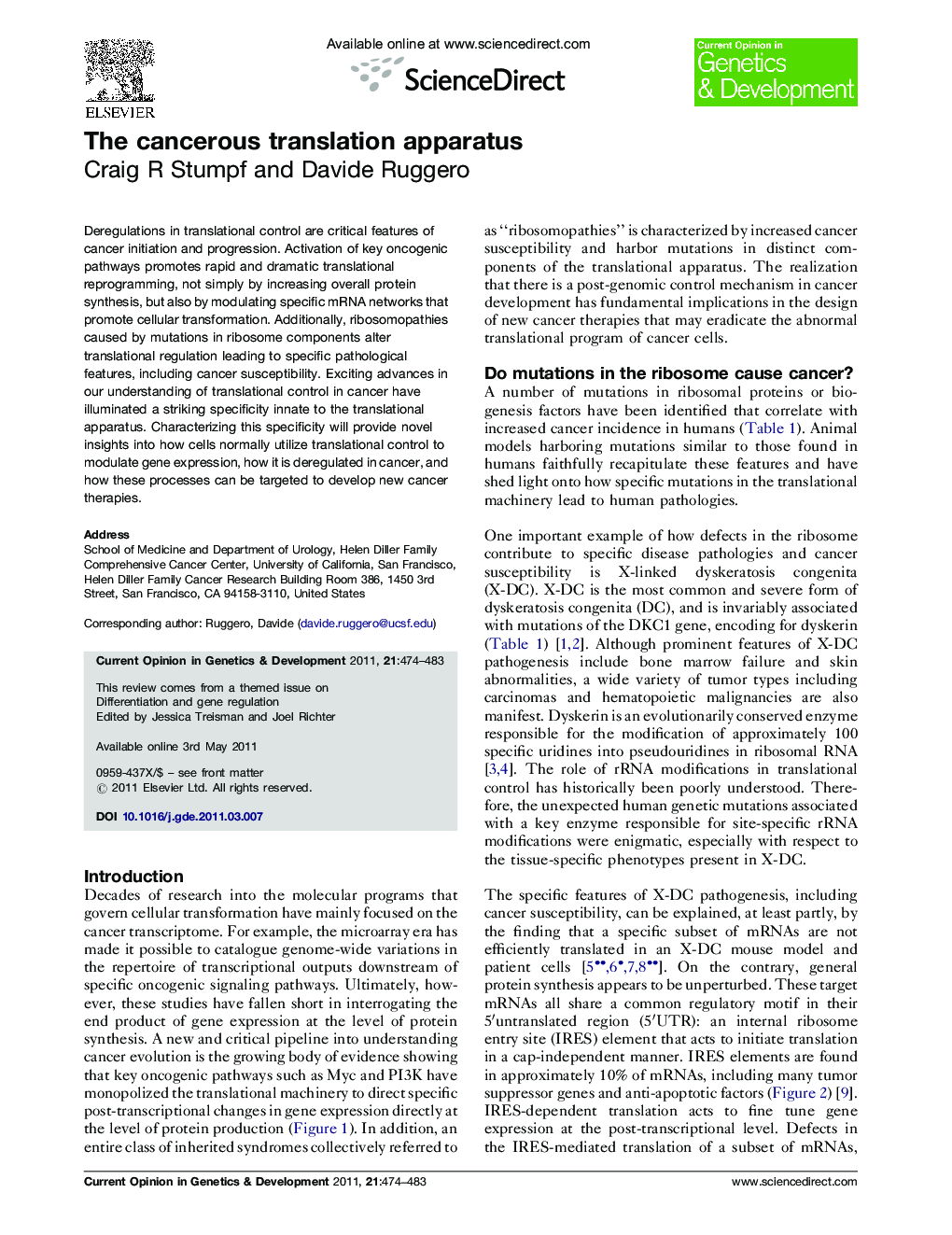| Article ID | Journal | Published Year | Pages | File Type |
|---|---|---|---|---|
| 2784981 | Current Opinion in Genetics & Development | 2011 | 10 Pages |
Deregulations in translational control are critical features of cancer initiation and progression. Activation of key oncogenic pathways promotes rapid and dramatic translational reprogramming, not simply by increasing overall protein synthesis, but also by modulating specific mRNA networks that promote cellular transformation. Additionally, ribosomopathies caused by mutations in ribosome components alter translational regulation leading to specific pathological features, including cancer susceptibility. Exciting advances in our understanding of translational control in cancer have illuminated a striking specificity innate to the translational apparatus. Characterizing this specificity will provide novel insights into how cells normally utilize translational control to modulate gene expression, how it is deregulated in cancer, and how these processes can be targeted to develop new cancer therapies.
► Deregulation of translational control is critical for cancer development. ► Mutations in ribosome components are associated with cancer susceptibility syndromes. ► Alterations in translational control impinge on distinct steps of cellular transformation. ► Translational deregulation of specific mRNAs contributes to tumor initiation and progression. ► Specific regulatory elements control translation of oncogenes and tumor suppressors.
